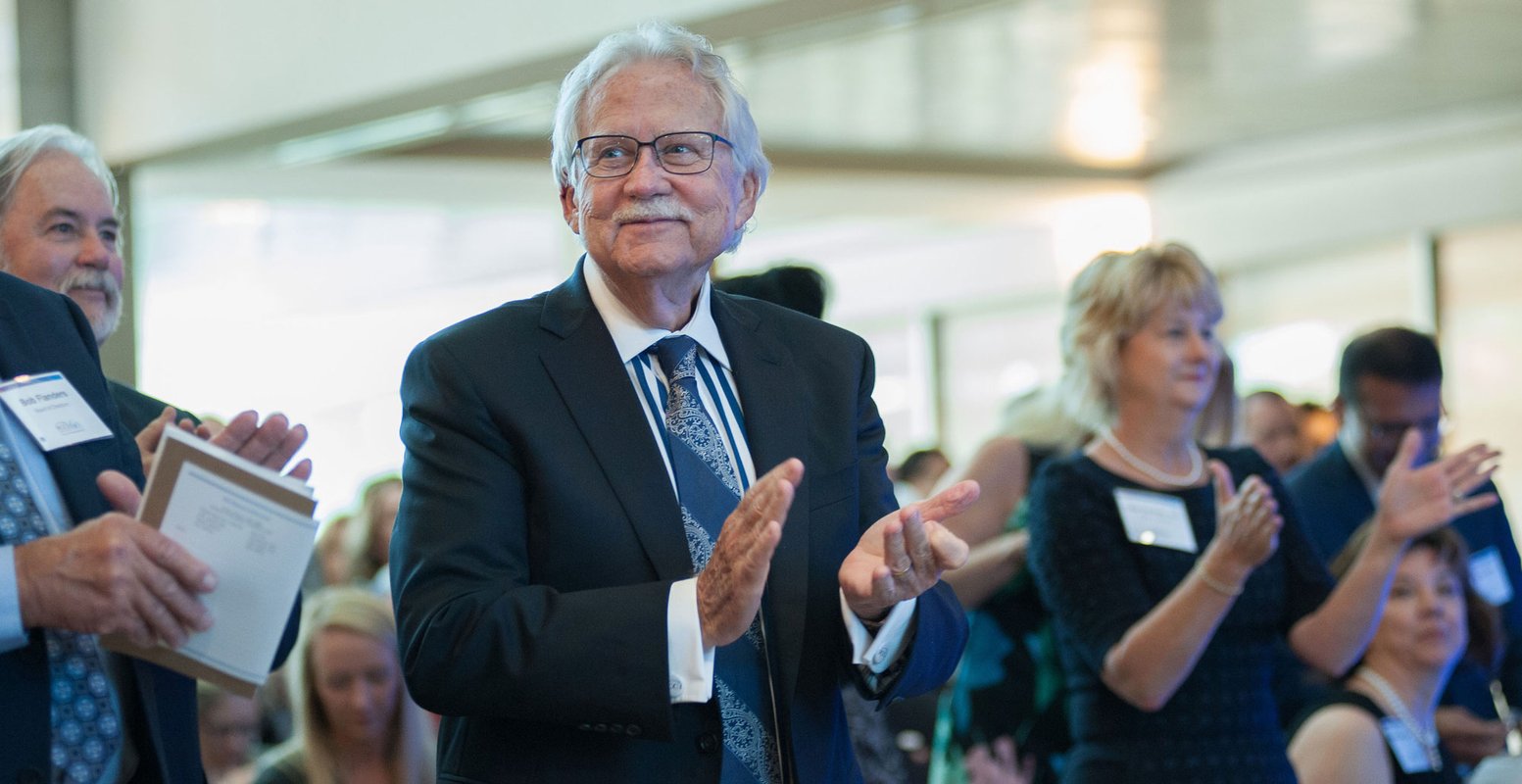G.W. Jacobs
Keeping promises lays the foundation for success

For longtime FCCI executive and current FCCI Insurance Group board member G.W. Jacobs, the insurance industry wasn’t in his sights when he returned to graduate school to earn his law degree. “We were amidst the Watergate scandal and I wanted to pursue a degree that would help me change the world,” he said.
But enter the insurance industry with FCCI he did, first as outside counsel, then in-house counsel/senior vice president to COO/executive vice president and, finally, to CEO in 1999. Yet, when you talk to him, you see that he ended up exactly where he belonged because, as he explains, insurance does, indeed, change the world for those who have suffered major, life-changing losses.
“When you think about what we do – we’re a safety net,” he said. “When someone needs workers’ compensation, or when someone’s business gets destroyed, we’re here to rebuild for them and help them through those tough times.”
As improbable as it may seem, Jacobs was forever influenced by an unusual, seemingly off-topic lecture by one of his law professors, who devoted an entire class to a discussion on sacrificial love.
“This professor took 3 percent of our entire course hours to talk about doing the right thing by society and demanded that we make this contribution by serving people,” said Jacobs.
From situations where the company didn’t have enough money to cover large claims (but found a way to pay them anyway), through its growth in the 1970s and again in the 1990s, to workforce reductions in tough times so that hardworking team members could enjoy better financial prospects, FCCI has never lost sight of its brand promise: “We live up to our promise to do the right thing.”
Jacobs notes that, beyond the stability and financial prospects of working at FCCI, its corporate culture is one of the greatest selling points for the recruitment of new talent. “I keep hearing that younger generations want to be working for companies with a purpose beyond profit. We want our teammates to be happy when they come to work and be proud of us,” he said. “Nobody thinks first of insurance companies when you want to make a positive impact. And yet, when you look at the good that insurance companies do, it’s a critical force in American society. It helps people put their lives back together when tragedy strikes. FCCI goes even further by recognizing and fulfilling its obligations to contribute to the communities we serve.”
In looking over his career and his continued service on the FCCI board, Jacobs is proud of his role in such an impactful organization.
“That’s been one of the greatest things for me, being a part of this organization over the years: we have a history going back all the way to 1959, and we’ve always done the right thing,” he said. “I think that’s been a critical part of our success, and we have built a reputation in the industry … for doing what we say we’ll do.”
“I keep hearing that younger generations want to be working for companies with a purpose beyond profit. We want our teammates to be happy when they come to work and be proud of us.”
FCCI has also been influenced by its beginnings 60 years ago as the Florida Contractors and Construction Industries Self-Insurance Fund.
With just $3,776 in assets to start, the fund collected premiums for workers’ compensation. Upon receiving a claim, if there was not enough money reserved, the members would have to pay the claim.
The board of directors approved all of the members and offered membership only to members with unquestionable ethics. “If you had ever failed to meet a contractual obligation or a promise, been sued and didn’t make it right, or something similar, then you couldn’t be a part of the Fund,” Jacobs said. This commitment to ethical operations and keeping promises has continued to this day.
G.W. Jacobs attended and spoke at the 60th anniversary celebration
Next Article
CHAPP, FCCI Celebrate 20 Years of Profitable Agribusiness
Download our full financial statements
Consolidated Financial Statements
As of and for the Years Ended December 31, 2019 and 2018
DOWNLOAD PDF
Table of Contents
